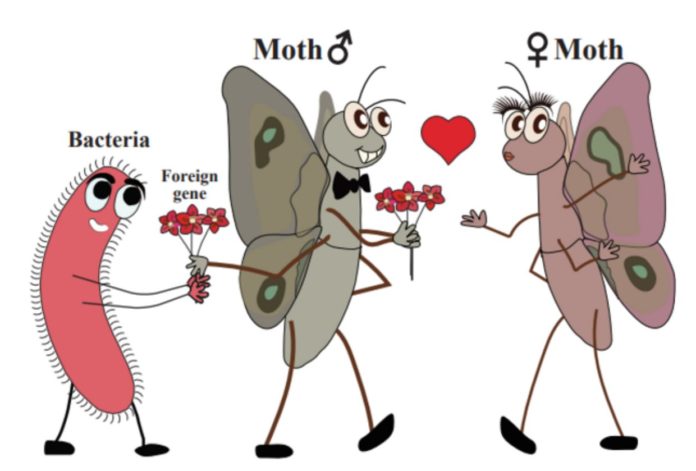It’s possible that hundreds of millions of years ago, insects gained an evolutionary edge from microorganisms and plants transmitting genes to them through horizontal gene transfer (HGT).
In a study that came out in the journal Cell today, researchers said that more than 1,400 genes from bacteria, viruses, fungi, and plants were found in 218 species of insects, such as butterflies and moths.
The study says that these genes may have been important for insects to evolve because they allowed them to get better at mating, eating, growing, and adapting to changes in their environment.
HGT (horizontal gene transfer) occurs often between microbes. For example, bacteria use this process to pass genes that make them resistant to antibiotics from one species to another. More recently, scientists have been studying this process between insects and microbes or plants.
Nobody knew how much HGT contributes to insect biodiversity, according to senior author Xing-Xing Shen (@shenxingxing1), an evolutionary biologist at Zhejiang University in Hangzhou, China. “Previous studies have shown that HGT may have contributed to insect biodiversity, but nobody knew how large a role it plays in this process,” she adds. “Since there are a lot of high-quality insect genomes available for our analysis, I thought that now is a good time to systematically investigate how prevalent HGT is in insects.”
Together with Antonis Rokas, an evolutionary biologist at Vanderbilt University, Shen’s team at Zhejiang University began this effort by collecting 218 high-quality insect genome samples, which represent 11 of the 19 orders of insects with the greatest diversity in species.
With the use of the data, scientists were able to create an evolutionary tree, spot genes that were misplaced and were more frequently discovered in non-animal genomes, and investigate the factors that affect how HGT in insects turns out.
“There were HGT events everywhere we looked,” says Shen, adding “However, we don’t know whether these transfers of genes are beneficial to the insects, or even the functions for most of these genes.”.
He requested help from Jianhua Huang, a specialist in the activities of genes in insects and a professor at Zhejiang University.
“Shen walked into my office with a list of more than 1,400 genes, and we had to decide where to start,” says Huang.
The group made the decision to confirm the operation of LOC105383139, the most common foreign gene with no known functions in insects.
According to the study, “This gene was horizontally introduced into nearly all moths and butterflies from a donor in the bacterial genus Listeria,” indicating that this gene has been present in the genome since the evolution of moths and butterflies more than 300 million years ago.
They decided to take out this old gene from diamondback moths, which are a pest that eats broccoli and cabbage, to see what it does.
“Surprisingly, we saw those moths lacking this gene cannot produce many viable eggs,” Huang adds. “Then, we found that the gene influences the male courtship behavior.”
The group plans to do more research to find out how this gene makes it easier for insects to mate and if it can be used to get rid of pests.
Image Credit: Yang Li Liu & Xing Xing Shen
You were reading: What Happens When We Delete An Ancient Gene – Insect Study Surprised Scientists
